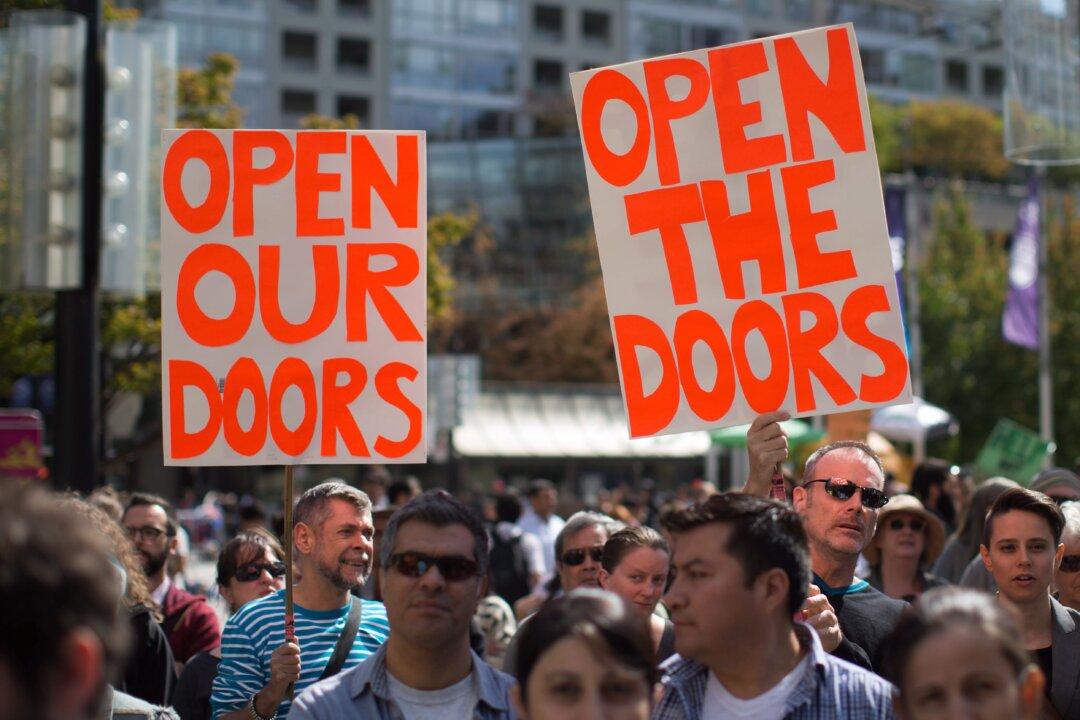VANCOUVER—As British Columbia joins other provinces pledging support for displaced Syrians, an immigration expert says calls for Canada to accept more refugees fail to address the crucial question of who would foot the bill.
University of Toronto sociology professor Monica Boyd said such requests amount to asking the federal government to pay the tab—about $35,000 per refugee family in the first year.
But the topic of funding is absent from the discussion taking place publicly between a growing list of provinces and Ottawa, she noted.
“They’re having a conversation in the middle of a marshmallow,” said Boyd, who is also the Canada Research Chair in Immigration, Inequality, and Public Policy. “What that means is there are certain things that aren’t being said, namely: ‘Where’s the money coming from?’”
Under current regulations, provinces are legally not allowed to sponsor refugees—only the federal government and private citizens have that power. But that hasn’t stopped provinces from chiming in with announcements ranging from demands to boost immigration numbers to provincial funding for refugee support programs.
On Sept. 8, Premier Christy Clark announced a $1 million “readiness fund” to help refugees from war-torn Syria settle in B.C.
The one-time investment will provide trauma counselling, assist professional associations recognize foreign credentials, support job placement programs, and help private sponsors navigate the refugee-sponsorship process.
On Sept. 7, Quebec announced it was prepared to take in 3,650 Syrian refugees by the end of the year—2,450 more than initially planned.
The province promised $29 million to assist in that effort, with most of the money going toward language training, job aid, education, and health care.





